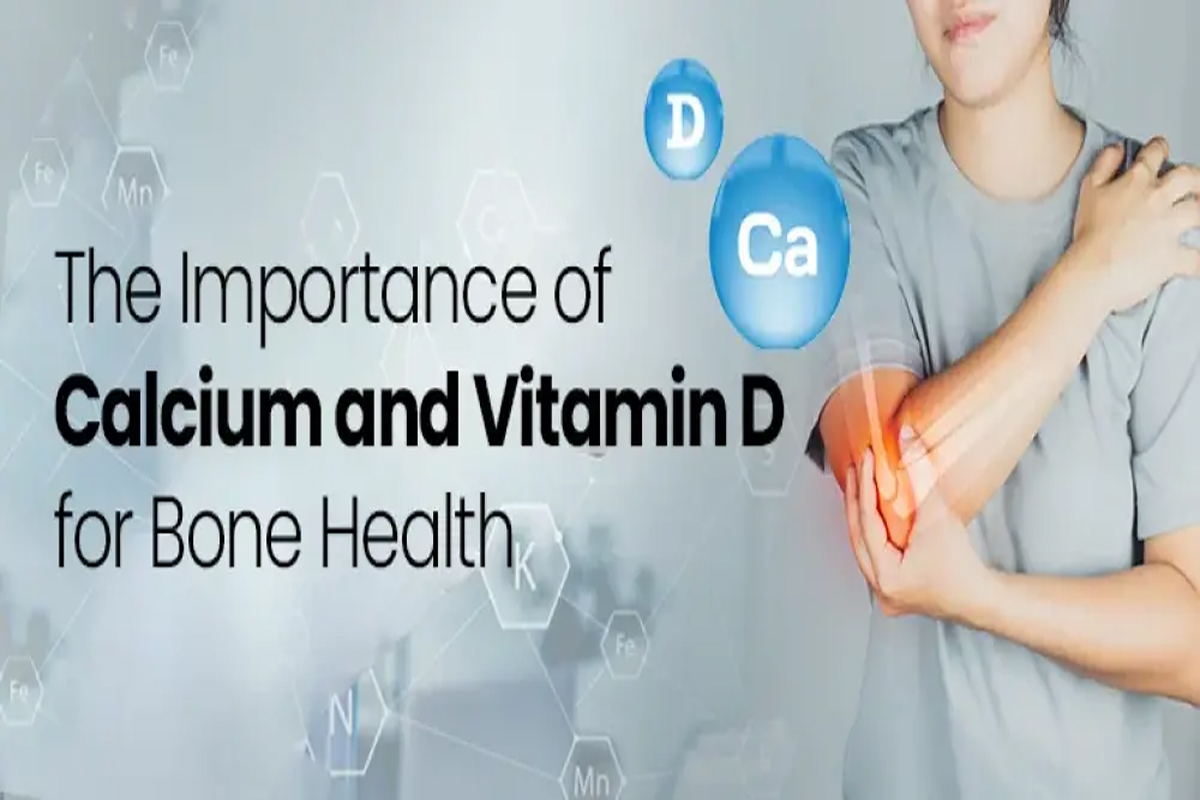
The Importance of Calcium & Vitamin D in Bone Health
By Dr. Kiran Seth in Rheumatology
Oct 23, 2024
Calcium and vitamin D are essential nutrients that play a critical role in maintaining bone health and preventing conditions such as osteoporosis. Bones are dynamic structures that undergo continuous remodeling, with old bone tissue being replaced by new tissue. To support this process, the body requires adequate amounts of calcium and vitamin D.
Calcium: The Building Block of Bones
Calcium is the most abundant mineral in the human body, with about 99% of it stored in the bones & teeth. It serves several vital functions beyond just building and maintaining bone mass. Calcium is crucial for muscle contraction, nerve transmission, blood clotting, and the release of hormones and enzymes that are essential for various bodily functions.
The recommended dietary allowance (RDA) for calcium varies by age and gender, with adults needing between 1,000 to 1,200 mg per day. Good dietary sources of calcium include dairy products like milk, yogurt, and cheese, as well as green leafy vegetables (e.g., broccoli and kale), fortified foods (such as orange juice and cereals), and certain fish (like sardines and salmon).
When the body does not receive enough calcium through diet, it can lead to a decrease in bone density. Over time, this can increase the risk of fractures and osteoporosis, a condition characterized by weak and brittle bones. Therefore, ensuring adequate calcium intake is vital for maintaining strong bones throughout life.
Vitamin D: The Sunshine Vitamin
Vitamin D is essential for preserving bone health. It helps the body absorb calcium from the diet and is essential for maintaining adequate serum calcium and phosphate levels, which are critical for healthy bone formation. Inadequate vitamin D can lead to bones becoming thin, brittle, or deformed.
The primary source of vitamin D is sunlight; the skin synthesizes vitamin D when exposed to UV rays. However, due to factors like geographical location, time spent indoors, and use of sunscreen, many individuals may not get enough sunlight to produce adequate levels of vitamin D. In such cases, dietary sources become essential. Foods rich in vitamin D include fatty fish (such as salmon and mackerel), fortified dairy products, egg yolks, and fortified cereals.
The RDA for vitamin D is around 600 to 800 IU for most adults, but higher doses may be recommended for older adults or those at risk of deficiency. Regular monitoring of vitamin D levels is advisable, especially for individuals with limited sun exposure or those with certain medical conditions that affect vitamin D metabolism.
The Synergy of Calcium and Vitamin D
Calcium and vitamin D function together to enhance bone health.Vitamin D enhances calcium absorption in the intestines, while calcium is necessary for vitamin D’s function in maintaining bone integrity. A deficiency in either nutrient can lead to impaired bone health.
For optimal bone health, it is essential to ensure that both calcium and vitamin D levels are adequate. This can often be achieved through a balanced diet, sunlight exposure, and, if necessary, supplements. Healthcare providers can offer guidance on appropriate supplementation and dietary changes based on individual needs.







